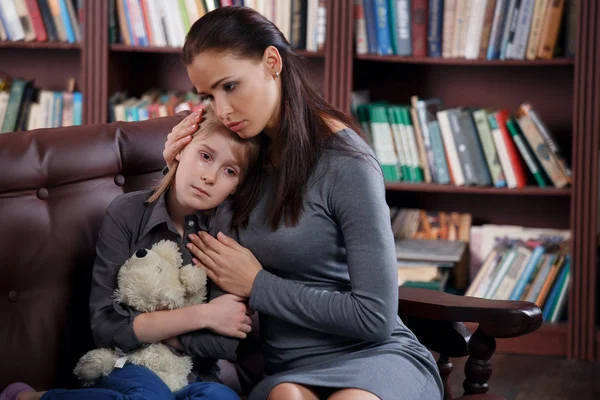Emotional trauma can have a profound impact on an individual’s life, affecting their mental and emotional well-being. Recognizing the signs of emotional trauma in adults is crucial for offering timely support and treatment. In this article, we will delve into the subtle yet crucial indicators of emotional trauma and explore effective methods for recognition and treatment.
Understanding Emotional Trauma
Emotional trauma, often referred to as psychological trauma, results from distressing events or experiences that overwhelm a person’s ability to cope effectively. These experiences can vary widely, from childhood abuse and accidents to combat exposure and natural disasters. Emotional trauma doesn’t discriminate; it can affect anyone, regardless of age, gender, or background.

Common Causes of Emotional Trauma
Emotional trauma can be triggered by a range of experiences, including but not limited to:
- Abuse: Physical, emotional, or sexual abuse can leave deep emotional scars.
- Loss: The death of a loved one, a breakup, or losing a job can result in trauma.
- Accidents: Surviving a serious accident or witnessing a traumatic event can lead to emotional trauma.
Signs of Emotional Trauma
- Intense and Persistent Fear or Anxiety: Adults who have experienced emotional trauma may exhibit intense and persistent fear or anxiety, often triggered by reminders of the traumatic event. These feelings can be debilitating and interfere with daily life.
- Flashbacks and Intrusive Thoughts: Recurrent and distressing flashbacks, nightmares, or intrusive thoughts about the traumatic event are common signs of emotional trauma. These intrusive memories can disrupt a person’s ability to concentrate and lead to emotional distress.
- Emotional Numbness: Some individuals may emotionally detach themselves from their surroundings as a coping mechanism. They may feel emotionally numb, and unable to experience joy, love, or other positive emotions.
- Avoidance Behavior: Adults with emotional trauma may avoid places, people, or situations that remind them of the traumatic event. This avoidance can lead to social isolation and further emotional distress.
- Hyperarousal: Emotional trauma can cause hyperarousal symptoms, such as irritability, anger outbursts, difficulty sleeping, and a heightened startle response. These symptoms can strain relationships and impact overall well-being.
- Negative Changes in Beliefs and Mood: Individuals may develop negative beliefs about themselves or the world, leading to persistent negative mood states, self-blame, guilt, or shame.
- Physical Symptoms: Emotional trauma can manifest in physical symptoms such as headaches, digestive issues, and chronic pain. These physical manifestations are often linked to the emotional distress experienced.
Recognizing Emotional Trauma

Recognizing emotional trauma in adults requires a compassionate and observant approach. If you suspect that someone you know is experiencing emotional trauma, consider the following steps:
- Listen Actively: Encourage the individual to talk about their feelings and experiences. Provide a safe and non-judgmental space for them to express themselves.
- Offer Support: Let them know that you are there for them and willing to help. Emotional support from friends and loved ones can be a vital part of the healing process.
- Encourage Professional Help: Suggest seeking help from a qualified mental health professional. Therapy, counseling, and other evidence-based treatments can be highly effective in treating emotional trauma.
Treating Emotional Trauma
Effective treatment for emotional trauma often involves a combination of therapeutic approaches tailored to the individual’s needs. Here are some common methods used in treating emotional trauma:
- Cognitive-Behavioral Therapy (CBT): CBT helps individuals identify and change negative thought patterns and behaviors related to their trauma. It can provide valuable coping strategies and tools for managing distress.
- Eye Movement Desensitization and Reprocessing (EMDR): EMDR is a specialized therapy that helps individuals process traumatic memories and reduce their emotional impact. It often leads to significant relief from trauma-related symptoms.
- Medication: In some cases, medication may be prescribed to manage symptoms of anxiety, depression, or sleep disturbances associated with emotional trauma.
- Mindfulness and Relaxation Techniques: Practices like mindfulness meditation and relaxation exercises can help individuals manage stress and emotional dysregulation.
- Support Groups: Joining a support group with others who have experienced similar traumas can provide a sense of community and understanding.
Impact on Daily Life
Emotional trauma can disrupt daily life significantly. It may lead to problems in personal and professional relationships, hinder job performance, and affect physical health.
Recognizing Emotional Trauma in Oneself
Acknowledging that you may be experiencing emotional trauma is the first step towards healing. It’s essential to listen to your inner voice and recognize the signs within yourself.
Seeking Professional Help
Therapy and Counseling
Therapists and counselors specialize in helping individuals work through emotional trauma. Techniques like cognitive-behavioral therapy (CBT) can be highly effective in addressing trauma-related issues.
Medication Options
In some cases, medication prescribed by a psychiatrist can help manage symptoms such as anxiety and depression.
Self-Help Strategies
Mindfulness and Meditation
Practicing mindfulness and meditation can promote emotional healing by teaching individuals to stay present and manage distressing thoughts and emotions.
Healthy Lifestyle Choices
Regular exercise, a balanced diet, and adequate sleep can significantly improve emotional well-being.
Support from Loved Ones
Family and friends play a crucial role in the healing process. Open communication and empathy can make a significant difference in someone’s recovery.
The Healing Process
Healing from emotional trauma is a journey. It takes time and effort, but with the right support and resources, recovery is possible.
Preventing Future Trauma
Learning healthy coping mechanisms and seeking help when needed can reduce the risk of experiencing emotional trauma in the future.
What Expert Says

Here are some experts say on the signs and symptoms of emotional trauma in adults:
- American Psychological Association (APA): The APA defines emotional trauma as “a deeply distressing or disturbing experience that can have lasting negative effects on a person’s mental and emotional health.” The APA also lists the following as common signs and symptoms of emotional trauma in adults:
- Intrusive thoughts or memories of the traumatic event
- Nightmares or flashbacks about the traumatic event
- Avoidance of reminders or triggers associated with the trauma
- Hypervigilance or being constantly on guard for potential threats
- Feelings of numbness, detachment, or emotional shutdown
- Difficulty concentrating or experiencing memory problems
- Persistent feelings of sadness, hopelessness, or depression
- Irritability, anger outbursts, or emotional instability
- Self-blame, guilt, or shame related to the traumatic experience
- National Institute of Mental Health (NIMH): The NIMH defines emotional trauma as “a sudden, unexpected, or overwhelming experience — either physical or psychological — that is so severe that it can have lasting negative effects on a person’s life.” The NIMH also lists the following as common signs and symptoms of emotional trauma in adults:
- Difficulty sleeping
- Changes in appetite
- Difficulty concentrating
- Irritability or anger
- Feeling isolated or withdrawn
- Trouble controlling emotions
- Flashbacks or nightmares
- Avoidance of reminders of the trauma
- Feeling numb or detached
- Having trouble trusting others
It is important to note that not everyone who experiences a traumatic event will develop emotional trauma. However, if you are experiencing any of the signs or symptoms listed above, it is important to seek professional help. A therapist can help you to understand and cope with your trauma and develop healthy coping mechanisms.
Conclusion
Emotional trauma in adults is a complex and challenging issue, but it’s essential to recognize the signs and seek help when needed. Remember that healing is possible, and with the right support and strategies, individuals can reclaim their emotional well-being.
FAQs
- Can emotional trauma be completely cured?
- While complete “cure” may not be possible, emotional trauma can be effectively managed and its impact minimized with the right treatment and support.
- How long does it take to recover from emotional trauma?
- The duration of recovery varies from person to person. It depends on factors such as the severity of trauma and the individual’s response to treatment.
- Is it possible to recover from emotional trauma without professional help?
- While self-help strategies can be beneficial, professional help is often crucial for addressing emotional trauma effectively.
- What are some self-help techniques for managing emotional trauma?
- Mindfulness, meditation, journaling, and connecting with supportive friends and family are some self-help techniques that can aid in managing emotional trauma.
- Can childhood trauma resurface in adulthood?
- Yes, unresolved childhood trauma can resurface in adulthood and impact mental and emotional well-being. Seeking therapy is crucial in such cases.
Also Read | Disadvantages of Teeth Cleaning: The Importance of Regular Dental Cleanings for Overall Health
Last Updated on September 15, 2023 by 247 News Around The World







